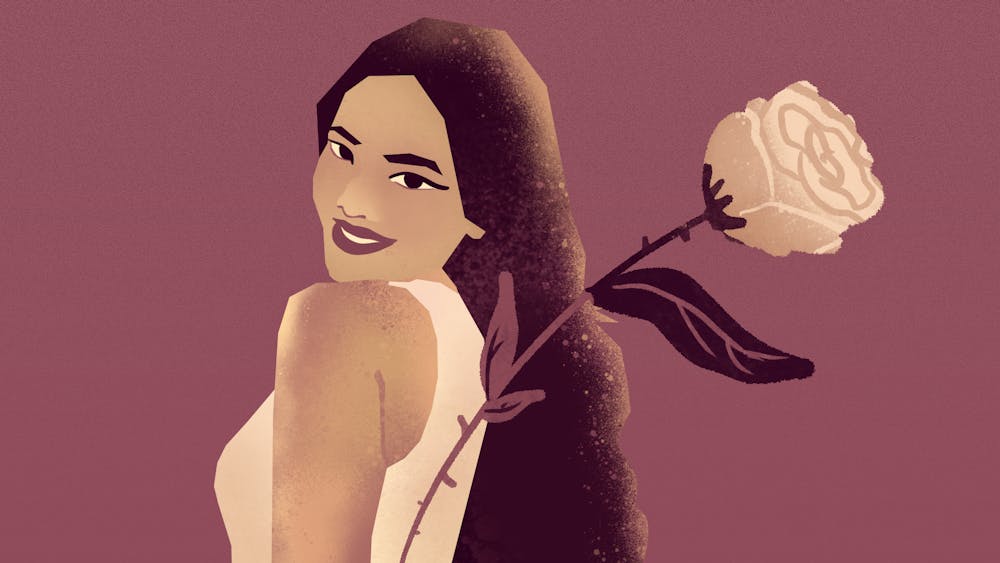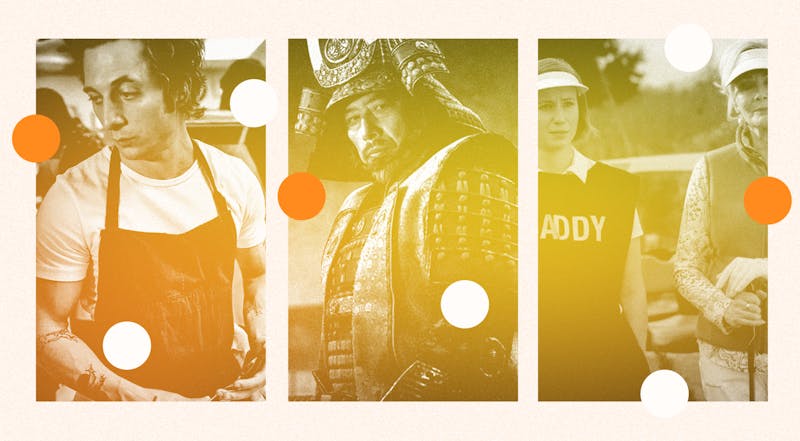Welcome to another season of The Bachelorette, where race politics are served alongside champagne and Chopard engagement rings. This time, however, we’re treading on historic ground.
Jenn Tran, the first Asian American Bachelorette in the franchise’s 21–season history, finally gave Bachelor Nation something fresh. Her season could have been groundbreaking for a series that’s built its empire on heteronormativity and bare minimum diversity. Yet, what we saw instead was a season overshadowed by lackluster contenders, an ex–girlfriend with a restraining order, and endless TikTok discourse about whether Tran was overshadowed by Maria Georgas—another Bachelor Nation favorite, who just so happened to be a white woman.
The Bachelorette delivered its signature reality TV cocktail: shaken, stirred, and occasionally spilled all over the floor. But beneath the orchestrated drama lies something more complex—something even Bachelor Nation can’t fully sanitize with its star–crossed love and questionable fashion.
Tran is the first Asian American Bachelorette in the franchise’s 20–year run. The pressure was real, as it often is when a person of color steps into the spotlight. People of color aren’t just competing for love—they’re competing to represent an entire demographic that’s been historically excluded from a fairy–tale narrative. The Bachelor franchise has been painfully slow at embracing diversity. It took 25 seasons to finally get Matt James, the first Black Bachelor. And even then, the narrative tiptoed around his identity, as if mentioning race too much might scare off their core audience, whose idea of diversity extends to how tan their favorite contestant looks on the beach date.
The sight of Tran’s family speaking Vietnamese—with a Hue accent, no less—was a moment that may have gone over many viewers' heads, yet it provided a rare touch of specificity for Vietnamese American audiences. Media often glosses over these regional nuances, favoring a one–size–fits–all portrayal of Asian cultures, where Vietnamese, Hmong, Japanese, and other identities are flattened into a singular, monolithic “Asian American” umbrella. This lack of representation culminated in one of the most gut–wrenching moments of the finale: Tran's mother silently weeping as she watched her daughter get her heart broken, having practiced her English for months in hopes of supporting Jenn on national television. Let that sink in.
But when Tran was announced as the lead, the conversation veered toward one particularly sensitive question: Why wasn’t it Georgas?
Fans across social media were ready to riot, convinced that Georgas—everyone’s (mine too) favorite from The Bachelor season 28—had been robbed. Georgas herself revealed that she turned down the role, citing mental health reasons. Still, this didn’t stop the internet from creating its own narrative.
Fans speculated that many of the contestants had been cast with the expectation that the Bachelorette would be someone who looked less like Jenn and more like the quintessential all–American girl next door. The usual complaints about an uninspired contestant lineup left Marcus Shoberg and Devin Strader as the last men standing. Shoberg, the textbook safe choice with his polished charm, and Strader, the rebellious bad boy with a past he couldn't quite outrun, were the final contenders, offering two starkly different but equally predictable options for Jenn.
The rest? They fumbled like men who had Googled "Vietnamese culture besides pho" the night before meeting Jenn’s mom.
Ultimately, Tran proposed to Strader. However, the romance quickly soured when the cameras stopped rolling. Following the finale, it was disclosed that Strader had a restraining order against him from a former partner, which cited allegations of both emotional and physical abuse, raising serious concerns about his character. Additionally, a burglary affidavit emerged, detailing further troubling behavior that painted a disturbing picture of his past. The couple's engagement was called off via a brief phone call, leaving Tran reeling.
Strader’s convoluted statement, released just days before this article was written, managed to be both a half–apology and a defense of his "growth" from his past. He called his behavior a "lapse in judgment." Sylvia Plath would’ve torn this narrative to shreds—no more of these men whose complexity earns them redemption arcs while the women who love them must clean up the mess.
This leads us to the Oxford—sorry—the California State University at Long Beach–Penn Annenberg School for Communicationstudy. In an age where every hot take gets a life of its own, a TikTok user coined the idea that white men hold sway over Asian women’s subconscious—“the power of the Caucasian [male] over the Asian female subconscious needs a full Oxford [study].” The closest thing we’ve got is a study conducted at Cal State Long Beach by CSULB professor Worawongs Chanthapan and Penn lecturer Murali Balaji, which looks at how TV advertisements influence perceptions of romantic relationships between white men and Asian women. The University of Oxford has never sponsored nor sanctioned a study on white–Asian race relations in the vein of fetishization. TikTok’s Oxford Study is putting a prestigious brand on casual fetishization for a veneer of intellectualism.
Tran’s final choice of a white suitor, Strader, became a rallying point for misguided and most likely misogynistic souls, once again reducing Tran’s agency to a trope: the Asian woman seeking validation and status through whiteness.
What this boils down to is something more sinister: the assumption that Asian women are universally drawn to white men because of some deep–seated racial inferiority complex. This assumption—couched in the language of pseudo–psychology—is not only racist but deeply anti–feminist. It strips Asian women of their individuality and reinforces the harmful notion that they’re somehow “lesser” if they date outside their race. The idea that dating someone of your own race makes you more “in tune with your culture” is absurd and racist. It strips individuals of agency, reducing their relationships to mere acts of racial negotiation. The white man isn’t necessarily fetishizing the Asian woman, and the Asian woman isn’t necessarily trying to “climb the social ladder” via her relationship.
Why is it that a woman entering the public romantic arena must shoulder not just the quest for personal love but also the burden of representation? Tran’s presence in The Bachelorette became a symbol, her every decision a lightning rod for discussions about race, femininity, and the Western gaze on Asian women. The assumption that Tran must be "assimilating" because her dating pool featured white men infantilizes her agency and autonomy. It is comically reductive. Equality in relationships can only come when we stop treating women as mere reflections of their male counterparts’ status.
The Bachelorette might be a bubble, but the way we discuss these relationships reveals a lot about the world outside of it. The assumptions placed on Tran's relationship—fetish, submission, and assimilation—are textbook examples of reducing Asian women to mere symbols rather than fully formed individuals with desires and choices. As Mary Wollstonecraft argued, when women are treated as equals in all respects—intellectual, emotional, and, yes, romantic—we stop talking about them as if they were objects to be possessed, by their race or anyone else.
A Vietnamese Bachelorette is groundbreaking, but the real victory will be when her narrative isn’t overshadowed by problematic contestants, misleading internet discourse, or a society that still hasn’t figured out how to let women of color just be.






